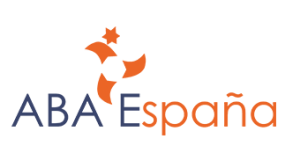 As we explore the state of behavior analytic services for individuals with autism , I invited several colleagues from around the world to serve as guest bloggers.
As we explore the state of behavior analytic services for individuals with autism , I invited several colleagues from around the world to serve as guest bloggers.
Our guest blogger this month is Virginia Bejarano Ruiz, M.S., BCBA, ABA Psicología Enséñame in Madrid, Spain. [Edited and translated from Spanish by Corina Jimenez-Gomez]

Like in the rest of the world, Spain has seen a considerable increase in the number of people  diagnosed with autism spectrum disorder (ASD). We do not know the exact prevalence of ASD in Spain, however, due to a lack of oficial data from population studies or census. In Europe, there is estimated one case of ASD per 100 births. In the Community of Madrid, capital of Spain, there are an estimated 6,000 individuals diagnosed with ASD. Nowadays, there is plenty of visibility of this issue on the media. Often there are television reports regarding individuals with ASD and there are many references in Spanish social media.
diagnosed with autism spectrum disorder (ASD). We do not know the exact prevalence of ASD in Spain, however, due to a lack of oficial data from population studies or census. In Europe, there is estimated one case of ASD per 100 births. In the Community of Madrid, capital of Spain, there are an estimated 6,000 individuals diagnosed with ASD. Nowadays, there is plenty of visibility of this issue on the media. Often there are television reports regarding individuals with ASD and there are many references in Spanish social media.
In Spain, there is ample debate and opposing opinions regarding the services and schooling for children with ASD. After a diagnosis is given, a team of professionals working for the Community of Madrid is in charge of determining which form of schooling the child will receive. For preschool-aged children, services would typically consist of two 45-minute sessions per week in a center for early intervention. School-aged children with ASD in the Community of Madrid may receive services in a range of settings: regular education centers with integration capacities, regular education centers with ASD classrooms, special education centers, or a combination of these. Although many children with ASD begin their schooling in ASD classrooms, many are later moved to special education centers, which can result in diminished access to services. ASD classrooms are typically staffed with teachers trained in the areas of special education, speech and language pathology, or specialists in social integration. These schools base their interventions on the use of pictograms, sign language, visual schedules and TEACHH. There is only one school in Spain that utilizes ABA approach for the schooling of children with ASD. This school, La Escuelita de Ilusiones, is located in Tenerife, Canary Islands.
ABA services in Spain, as in other European countries, are scarce compared to those found in the USA. Most of the behavior analysts providing ABA services do so in private centers or in the family’s home, outside of the regular school hours. For a behavior analyst working with a student outside of school hours, it is difficult to gain access to public schools to offer support or work directly with their client in that setting. Access to the child during school hours might be easier if they attend a private school, but this only affects a small minority of children with ASD. Overall, availability of ABA services is limited to a few after school hours for school-aged children.
Another difficulty encountered by behavior analysts and families of children with ASD is the limited support provided by the government. Unlike other health services in Spain, ABA is not funded by public institutions. Private insurance provided by some employers can be used to cover the cost of ABA services, as well as other interventions. As a result of this funding situation, the majority of families have to cover the costs associated with ABA services themselves, which in turn directly impacts the number of hours of services rendered resulting in interventions of lower intensity than recommended.
In Spain, the increase in demand for behavior analytic interventions for children with ASD has been a result of parents pushing for an alternative to the other services available that have not met their child’s needs. Parents, however, are often resistant to enroll their children in the recommended intensive or semi-intensive ABA interventions due to a range of reasons, such as time commitment, cost, and misconceptions regarding ABA.
 Given the current climate, it is a challenge to practice behavior analysis in Spain. But there is hope. The number of people certified by the BACB continues rise consistently. I was among the first BCBAs in Spain back in 2013. Today, there are 18 BCBAs and one BCaBA. In addition to the increased demand for our services, ABA España has played an integral role in the training and dissemination of behavior analysis in Spain. The BACB certification is gaining recognition along with the value of our science to help individuals with ASD.
Given the current climate, it is a challenge to practice behavior analysis in Spain. But there is hope. The number of people certified by the BACB continues rise consistently. I was among the first BCBAs in Spain back in 2013. Today, there are 18 BCBAs and one BCaBA. In addition to the increased demand for our services, ABA España has played an integral role in the training and dissemination of behavior analysis in Spain. The BACB certification is gaining recognition along with the value of our science to help individuals with ASD.
I look back to when I started working in the field of ABA in Spain almost 20 years ago. The first families we served did not dare tell schools or other professionals their children were receiving ABA services. We, as behavior analysts, were subjected to prejudice and suspicion. Things have changed considerably in this regard, but we still have much work to do and myths to bust.

Would you like to hear about behavior analytic services in a particular part of the world? Let me know!
Would you like to share your experiences from your corner of the world? Contact me!


 Follow the
Follow the